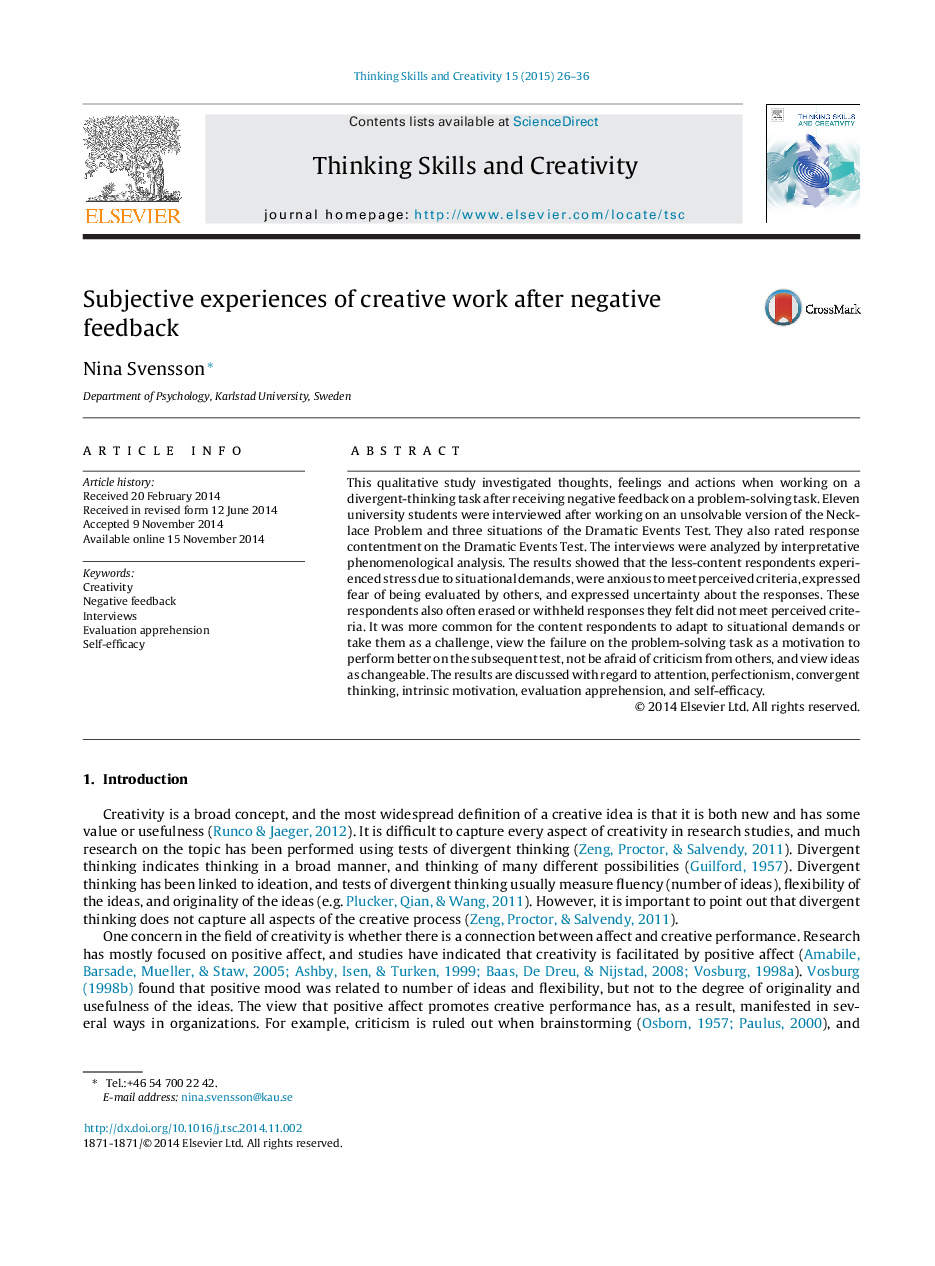| Article ID | Journal | Published Year | Pages | File Type |
|---|---|---|---|---|
| 6852033 | Thinking Skills and Creativity | 2015 | 11 Pages |
Abstract
This qualitative study investigated thoughts, feelings and actions when working on a divergent-thinking task after receiving negative feedback on a problem-solving task. Eleven university students were interviewed after working on an unsolvable version of the Necklace Problem and three situations of the Dramatic Events Test. They also rated response contentment on the Dramatic Events Test. The interviews were analyzed by interpretative phenomenological analysis. The results showed that the less-content respondents experienced stress due to situational demands, were anxious to meet perceived criteria, expressed fear of being evaluated by others, and expressed uncertainty about the responses. These respondents also often erased or withheld responses they felt did not meet perceived criteria. It was more common for the content respondents to adapt to situational demands or take them as a challenge, view the failure on the problem-solving task as a motivation to perform better on the subsequent test, not be afraid of criticism from others, and view ideas as changeable. The results are discussed with regard to attention, perfectionism, convergent thinking, intrinsic motivation, evaluation apprehension, and self-efficacy.
Related Topics
Social Sciences and Humanities
Psychology
Developmental and Educational Psychology
Authors
Nina Svensson,
